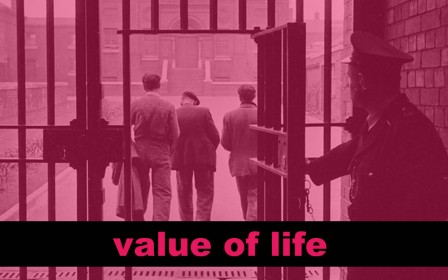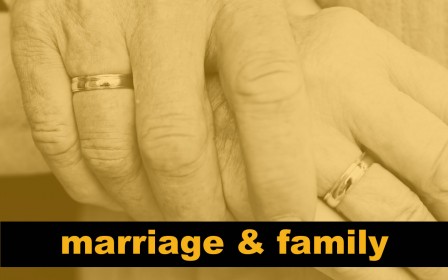
by NZ Christian Network | 16 Dec , 2014 | FOCUS, Media Releases, Secularism
Media Release – 15 December 2014
New Zealand Christian Network director Glyn Carpenter is calling for people to pray and exercise understanding over the Sydney hostage incident.
“Most important” Carpenter says, “is to pray for the victims and families of those directly involved in the incident – especially those who have been killed or injured.
“I wrote earlier today to our sister organisation in Australia expressing sympathy and saying that Kiwis all over New Zealand would be praying for them all.
“We are also calling for understanding, and praying that this will not result in any backlash towards Muslims in Australia or New Zealand.
“News reports indicate that the gunman was a sociopath who was using religion as a cover for his common criminal activity. We have plenty of examples of sociopathic behaviour in New Zealand and I’m sure in Australia. Most commonly these are not linked to any religion and don’t result in any negative backlash, so there’s absolutely no reason for there to be one in this case.
“We thank the media who have quickly exposed the gunman’s lack of connection with mainstream Muslim community in Australia, and call on Kiwis to continue to grow friendship and hospitality to Muslims living in New Zealand.
“And we pray for all the victims and their families as they try to come to grips with the aftermath of this tragic incident”.
New Zealand Christian Network is a broad-spectrum network of churches and Christian leaders, with a Board of Reference that includes leaders from all the main denominations. It seeks to present a biblically orthodox position on issues, reflecting the views of the majority of Christians in New Zealand.
For queries or further information contact: Glyn Carpenter
National Director, New Zealand Christian Network

by NZ Christian Network | 4 Dec , 2014 | FOCUS, Media Releases, NZCN, Secularism
MEDIA RELEASE – 4 December 2014 (Updated 12 Dec)
UPDATE (12 December) – media have reported that the Speaker of the House has decided to retain the current prayer.
Concern over Parliamentary Prayer Decision
New Zealand Christian Network director Glyn Carpenter has raised concerns ahead of a decision on the prayer used in parliament.
Parliament’s speaker Rt. Hon. David Carter has written to all Members of Parliament seeking their views on an alternative prayer by this Friday.
Carpenter has written to MPs supporting the updating of language and inclusion of te reo Maori, but stating that if it’s an either/or choice between the current Christian prayer and the proposed alternative, there are good reasons to retain the status quo.
“This Christmas Day we mark 200 years since the Christian message was first preached in New Zealand” says Carpenter, “highlighting the fact that New Zealand is in many ways still a distinctively Christian country, even if many people no longer practise the faith.
“We’ve had many supportive responses, but also a couple that are hard to understand. One MP said that the House of Representatives must reflect the various faiths of all New Zealanders so that all New Zealanders feel represented by their Parliament, regardless of their religious beliefs”.
Carpenter says this is simply impossible. “How can the proposed new prayer that starts with “E te Atua Kaha Rawa (Almighty God)” make the 40% of New Zealanders who do not claim a belief in God feel included? How can a prayer not offered in the name of Jesus Christ make Christians feel included?
“It is a mistake to believe that all Christians will feel represented by a prayer that is made to some generic deity.
“If they want to get rid of the Christian prayer, then they should have the courage to be upfront and say so” says Carpenter. But let’s not pretend there’s a way to satisfy everyone on this matter”.
The Christian prayer should be retained in Parliament, reflecting our heritage, culture, and the faith that is foundational in our society, and still claimed by nearly 50% of New Zealanders.
New Zealand Christian Network is a broad-spectrum network of churches and Christian leaders, with a Board of Reference that includes leaders from all the main denominations. It seeks to present a biblically orthodox position on issues, reflecting the views of the majority of Christians in New Zealand. For queries or further information contact : Glyn Carpenter
National Director, New Zealand Christian Network

by Glyn Carpenter | 13 Oct , 2014 | FOCUS, Value of Life
Kim Workman (Rethinking Crime and Punishment) blogged recently about Christians and the death penalty. This is a controversial issue, although maybe less so now than in years gone by.
October 10th was the 12th World Day against the Death Penalty, promoted by the World Coalition Against the Death Penalty, an alliance of more than 150 NGOs, bar associations, local authorities and unions, created in Rome on 13 May 2002. The aim of the World Coalition is to strengthen the international dimension of the fight against the death penalty. Its ultimate objective is to obtain the universal abolition of the death penalty. To achieve its goal, the World Coalition advocates for a definitive end to death sentences and executions in those countries where the death penalty is in force. In some countries, it is seeking to obtain a reduction in the use of capital punishment as a first step towards abolition.
The topic was debated at the Eight Biennial International Council meeting of Prison Fellowship International held in Johannesburg, South Africa from the 17 – 19th September, and Kim Workman attended and presented New Zealand’s position on the topic.
Prison Fellowship founder Chuck Colson supported capital punishment in the most extreme cases. His successor (recently retired) Ron Nikkel recognised there were different views within Prison Fellowship and felt the matter needed to be debated properly.
Read the conclusion of the debate ..
Ron Nikkel is in Auckland this week, and has agreed to speak on the topic “Just Prison” at a public meeting hosted by Prison Fellowship and the Robson Hanan Trust (Rethinking Crime and Punishment/JustSpeak) to be held on Wednesday, 15th October, 7.30pm at the Holy Trinity Cathedral, Cnr St Stephens and Parnell Road, Auckland.

by Glyn Carpenter | 2 Oct , 2014 | Church, FOCUS, Marriage and Family
A married man with heart disease can be expected to live, on average, 1,400 days (nearly four years) longer than an unmarried man with a healthy heart
Some may dismiss this as ‘special pleading’ given that the article does after all feature in a ‘religious’ newspaper (the Catholic Sun). Others however may read it and consider that there is more to God and God’s ways than they had previously thought.
Either way, make sure to share it with friends.
via Studies confirm religion increases longevity, and marriage does too | The Catholic Sun.
Check out also the NZCN|Notes on marriage at http://nzchristiannet.wpengine.com/nzcn-notes/
… and the Marriage Week (7-14 February) website www.marriageweek.org.nz
by Glyn Carpenter | 23 Sep , 2014 | FOCUS, Secularism
Good on Redland (Queensland, Australia) Mayor for responding so graciously and wisely to a letter to the editor attacking her role in a Prayer breakfast.
… my Christian values drive my passion for this City, my tolerance of different views and my desire to do what I can whilst I am caretaker of this City – to make it a better place than when this privileged role was bestowed on me. – Karen Williams, Mayor of Redland City
This is a fine example of how Christians – in New Zealand just as in Australia – can talk about their faith in the public domain, at the same time as highlighting the importance of faith in general.
Read more … Letter: Mayor responds to Prayer breakfast criticism | Redland City Bulletin.

by NZ Christian Network | 13 Aug , 2014 | FOCUS, Secularism
By JOSEPH LOCONTE, PH.D. Joseph Loconte, Ph.D., is an associate professor of history at the King’s College in New York City and the author of “The Searchers: A Quest for Faith in the Valley of Doubt” (Thomas Nelson, 2012).
This article was originally published at the Huffington Post on 21 July, 2014
Throngs of people gathered last week in Sorrento’s Piazza Tasso for what might be called a faith-based fireworks display. Hundreds of rockets and roman candles were shot from the roof of the sanctuary of the Chiesa del Carmine, a church that dates back to the middle of the third century CE. Tourists broke into applause at the illuminated sky, but most probably had no idea what was behind the celebration – a knowledge gap hinting at a spiritual deficit that defines the modern age.
Sorrento locals were celebrating the feast of Santa Carmine, an event repeated all over Italy, in which Catholic saints are regularly honored with special masses amid festive parties, flea markets, and fireworks. I’ve been traveling to Italy nearly every year for a decade, and I often find myself caught up in one of these celebrations.
The festas honoring the saints are intended as reminders: a prod to reflect on the lives of exemplary Christians and their contribution to the church and the wider society. But let’s be realistic: do most people see any connection between historic Christianity and the world around them? What stands out instead is a collective amnesia about the spiritual foundations of modern life.
Take just one example: the commitment of liberal democracies to care for “the least of these” among us.
I was reminded of this during a recent trip to Ventotene, a beautiful little island in the Tyrrhenian Sea, off the coast of Naples. The island was the birthplace of my maternal grandfather, Giuseppe Aiello. If you sit in the Piazza Castello in the late afternoon, you will watch the children of Ventotene take over the square with their games. They will play together, with parents and grandparents looking on, until midnight or later. It is a little oasis of youth and family and friendship and joy.
One evening I noticed a small group of children running and dancing about, and among them a little boy was limping. There was something wrong with his leg – perhaps a birth defect – but he was playing right along with his friends. “Andiamo,andiamo,” they shouted, and the little boy kept up with them. More than that, he was a vital part of the game.
We have forgotten what a remarkable thing this is: a little boy with a physical defect is included, accepted, and welcomed into the human family. We do not neglect him: we make room for him. This did not used to be a moral norm for Western Civilization – not before the arrival of Jesus the Nazarene and the emergence of his church.
We know what the Greeks, especially the Spartans, thought of babies and children who did not measure up to their physical ideal: they abandoned them and left them to die from the elements. The Greeks may have introduced democracy into the West, but their view of personhood was shallow and intolerant. Their cultural successors, the Romans, held ideas about human society that were equally impoverished. Romans were proud of their commitment to the rule of law (for Roman citizens), but their laws would not protect infants and children deemed useless to the regime. As declared in Rome’s The Twelve Tables: “Deformed infants shall be killed.”
These assumptions about “useful” human lives, according to historians, were “infamously universal” among the Greeks and Romans (as well as virtually every other ancient society). The philosopher Seneca admitted that “we drown children who at birth are weakly and abnormal.” Girls were at special risk. A letter from a pagan husband to his pregnant wife, dated at about the time of Jesus’s birth, captures the mindset: “if it is a boy keep it, if a girl, discard it.” Social scientist Rodney Stark writes that the exposure of infants was not only common, but “it was justified by law and advocated by philosophers.” W.E.H. Lecky called infanticide “one of the deepest stains of the ancient civilizations.”
Yet a profound change came over the West with the ascendance of the Christian sect in the centuries after the death of Jesus. A new ethos, based on a radically new outlook on human life, was introduced into the bloodstream of our culture. At its core was a belief that every individual – regardless of his or her status in society – was loved by the God of the universe.
Jesus himself set the example: the teacher who broke conventions and praised the humility of children as a gateway to achieving peace with God; the miracle worker who healed the lame, the lepers, and the blind; the preacher who enraged the religious establishment by insisting that no person – no matter how lost or despised – was beyond the reach of God’s grace. “What do you think?” he asked the crowds. “If a man owns a hundred sheep, and one of them wanders away, will he not leave the ninety-nine on the hills and go to look for the one that wandered off? And if he finds it, truly I tell you, he is happier about that one sheep than about the ninety-nine that did not wander off.”
Armed with this ethic, the early church vigorously opposed infanticide and became widely known for rescuing and caring for abandoned children. It was the Emperor Valentinian, under heavy Christian influence, who first outlawed these practices. Today’s legal regime against infanticide – simply taken for granted across the globe – must rank as one of Christianity’s greatest legacies.
But who among our educators, intellectuals, and entertainers is aware – or willing to admit – this legacy? We trumpet our progressive ideals, our culture of tolerance and inclusiveness, but forget where it all came from. We imagine that our ethos of compassion for the most vulnerable comes naturally, or that it can flourish without people of faith.
The secular republic teaches that we can dispense with the lives of the saints and yet preserve their hard-fought achievements. But history suggests that this belief is a leap into the dark, which no fireworks display can conceal.










